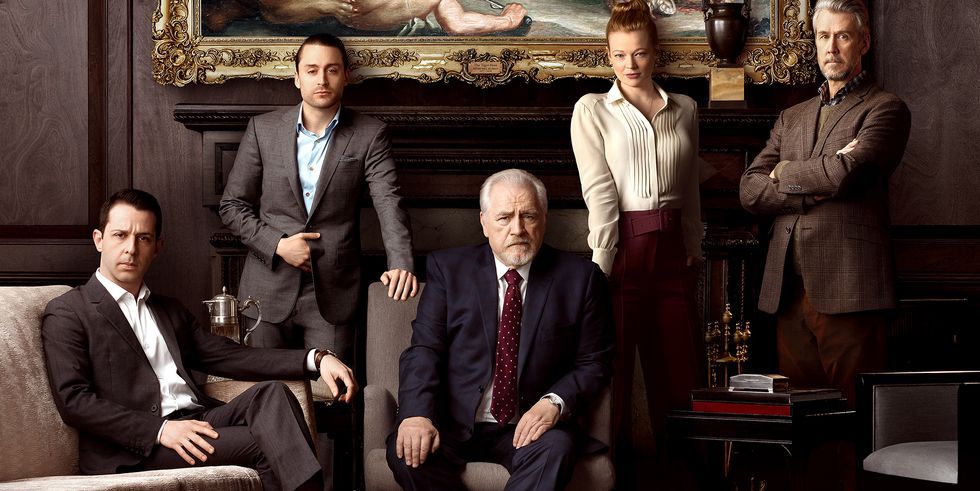
by wholeselftherapy | Apr 25, 2024 | The Human Condition
New relationships can sweep us off our feet. Often, there’s chemistry. Excitement. Possibility.
The idea is that this new person we’ve met holds the key to new opportunities and new experiences. They’ll help us access parts of ourselves that have been long forgotten. Vulnerable, tender, adventurous, or playful parts to name a few. They’ll round out our schedule with fun or pleasurable shared activities.
But what about knowing when someone is not your person?
Take the Time to Let Them Show You Who They Are
It’s only over time that we come to discover who that other person really is. Through observing them, listening to their words, and watching their behaviors, we discover the truth about them.
Sometimes that truth, what we come to know about them through observation and felt sense experience, is not at all what we saw initially, or what we thought we knew.
This truth can hit us hard. It can be incredibly painful. I know, because this recently happened to me.
A Friend Mis-Match
I made a new friend, and I was initially very excited about them. They seemed confident, playful, and smart. They knew things that I wanted to know about. They seemed to hold the skilled keys to this kingdom that I desperately wanted to get into. When we first got together, there was open sharing, exchanges of ideas, and mutual curiosity. The ingredients for a great friendship were all present.
But as the weeks and months went by, I started to see another aspect of them. They stopped being responsive. They canceled plans at the last minute. They didn’t follow through with their words.
Each time, I thought “Geez. What a bummer. Another letdown.”
Until I realized, this person was not my person, I suffered with feelings of rejection and disappointment. After some time, I realized that this person didn’t really value me. They didn’t get that they were missing out on someone pretty special. Bummer for them. Bummer for me.
But it wasn’t a “me” problem. I couldn’t fix this for them. This was a “them” problem.
Choosing to disconnect energetically from even wanting to hear from or maintain contact helped me to reorient myself and refocus my energy. I had to remind myself that there are a lot of people out in the world (close to 8 billion, to be exact). And some of them are going to get me and value me, way better than this one person could.
Knowing When Someone Is Not “Your Person”
If you are finding yourself in a relationship where you are:
Doing all of the initiating/emotional work/listening/giving/supporting/etc.
Or you are not:
Feeling respected/appreciated/prioritized/heard/valued/etc.
You might be with someone who is not “Your Person.”
And as heartbreaking as that is, it is better to know that you’re with someone who isn’t really your person, than to not know, and continue in a relentless pursuit of love or friendship with the wrong person.
If you’re struggling in your relationship, need support in knowing when someone is not “your person,” and would like some support, contact me today. I’d be happy to help.

by wholeselftherapy | Jan 5, 2023 | The Book Report, The Human Condition, Therapeutic Services
Folx, we have an issue. It’s a problem we all have, collectively. We, being the masses of us who avoid confrontation, who fear upsetting someone else, who feel it’s our duty to be easy-going enough that no one ever has a reason to dislike or be upset with us. The problem is our aversion to assertiveness. Where is the healthy communication in Asheville?
To be clear, “we” don’t actually all have this problem. Particularly for people who tend to self-aggrandize or feel entitled to have their voices heard (sometimes constantly), this is hardly an issue. But are those the people we really want to hear from (all of the time)? No. Unfortunately, though, we hear from the entitled folx a whole lot.
But the people who tend to be more self-sacrificial or empathic to the feelings and needs of those around them tend to be much, much quieter. Yet, those are the ones we need to hear from. From people like you.
Last summer I read the book Playing Big by Tara Mohr, which I highly recommend for women everywhere. In that book, she illustrates the problem of playing small, and how to overcome it.
But this issue of not speaking up is not only a woman’s issue. Admittedly though, we have the vast majority of anti-asserters.
In my psychotherapy practice, I see people of all genders struggling with the issue of speaking up, asking for what they want, and saying how they feel. Healthy communication in Asheville can be remarkably hard to come by. Keeping quiet and “keeping the peace.” But at what cost? The costs of this phenomenon are huge. Here are a few:
- authenticity
- emotional intimacy
- physical health
- mental health
- getting what you want from your relationships
It can be so hard to speak up in your relationships when you’ve been disappointed in the past, by the people you went to, to be vulnerable and express yourself with. If you’ve been ridiculed, humiliated, gaslit, abandoned. yelled at, or belittled. I see you. It’s especially hard for you. I know, I get it.
But the reality is that science now proves that the relationships we have are the most powerful indicators of happiness in life. They inform not only our emotional well-being but also our physical health. Check out this new book The Good Life, It’s based on the longest scientific study ever done on happiness. Know what they found about what humans need to be happy? Good relationships. Can we create good relationships without being honest about what we feel or what we want? Doubt it.
The good news is that it’s not too late and you’re not too old. You can always try again.
I am here to support you to find your voice, clarifying your needs, and discerning what relationships truly nourish your soul.
Let’s figure it out together. We can take as much time as you need.

by wholeselftherapy | Oct 14, 2022 | The Human Condition, Thoughts & Ideas
Self-centered. Self-absorbed. Self-righteous.
Self-care. Self-exploration. Selfhood. Self-sufficient. Self-aware. Self-assured.
What do you notice when you read the words above?
When I consider the words that we as a culture use to describe the relationships we have with ourselves, it strikes me that the language of selfhood is divisive and polarizing.
Some of the words of selfhood are damning, often used as highly charged criticisms that serve to diminish.
This especially occurs in families where getting one’s needs met is not valued.
Do you struggle with the question “Am I Being Selfish?”
For many adults who were raised in narcissistic households, “you’re so selfish” was a frequently heard criticism. When a child’s need conflicts with a narcissistic parent getting their own needs met, sparks can fly.
This is often how children begin to lose contact with their clarity about what they need, or their intuition about something feeling “off.” This is where co-dependency begins.
As adults, we need to take our autonomy back. To reclaim our power and to make choices based on our internal guidance system, not out of fear of someone else’s lashing out or punishing us through guilt or obligation.
“But, is it ok to be self-ish?”
This is a trick question. It all depends on how you define “selfish.” Here’s how Webster does it:
Selfish
1 : concerned excessively or exclusively with oneself : seeking or concentrating on one’s own advantage, pleasure, or well-being without regard for others.
2 : arising from concern with one’s own welfare or advantage in disregard of others
What I propose is a redefining and rebranding of “selfish,” one that puts the value of having a self and, yes, even putting the needs of that self at the forefront in a positive light.
The aim is not to think of oneself exclusively, at the expense of others, but to view the value of having a self, and practice of tending to that self, as an acceptable and shared value. I’d like this to be a community-endorsed trait. We all are looking after ourselves and that doesn’t make any of us bad people.
Self-exploration is an individual process with universal themes. We all must find our own way home to the center of our individual selves; to learn what we love, what inspires us, and what keeps us rooted as we move through the world.
If you find that you’re struggling, wondering to yourself “is it okay to want what I want?” or “am I being selfish?” it might be a good time to explore those questions with an objective and caring therapist who can support you on your journey. Drop me a line if you’re ready to get started.

by wholeselftherapy | Sep 29, 2021 | Articles, Schema Therapy, The Human Condition
Photo Credit: Harper’s Bazaar
Therapy for Childhood Trauma
This morning I read an article that has inspired a new category of Blog Post for Whole Self Therapy: The Human Condition. In The Human Condition, I will be sharing stories that illustrate what we humans all share: feelings, experiences, and unmet needs.
One of my favorite shows over the last few years has been HBO’s Succession. It’s a fabulously written and acted series about a super-wealthy family consisting of a patriarch, Logan Roy, and his four entitled adult children. In Succession, we watch each of Roy’s children struggle in their intimate relationships and vie for power as well as their father’s approval. Each character is so complex that it is hard to make a clear judgment about any of them; they are all nuanced and relatable in some way.
The elder, Logan Roy, is played by the seventy-five-year-old actor Brian Cox. In his recent interview published by the NY Times, Cox speaks about his mutuality with the authoritarian character he plays:
He’s quite angry. That’s something that probably he and I have in common.
Why are you angry? I’m angry about my childhood, in retrospect. I look upon it now, and I go, “Jesus, that was [expletive], and there was nobody really to help me.” I had to do it all on my own. I felt I needed some parental help. I needed some guidance. My son will tell you. I’m quite angry at times.
As a Schema Therapist, his words jumped out at me. Here is a man, a well-established and successful actor who is self-aware enough to know that his anger stems from his unmet childhood need for guidance. Perhaps if Brian Cox had done some therapy for childhood trauma, he would not still be holding onto his anger as an elder adult. The reality is that:
We all have unmet childhood needs.
This is the human condition.
Working together in therapy for childhood trauma, we work to explore and express those needs and the feelings associated with them. We do this because our experiences from childhood don’t leave when we turn eighteen; they stay with us for a lifetime.
For Cox, there is unresolved anger. While knowing and expressing it are both positive things, what is unfortunate is that it sounds like the anger is being expressed in the wrong direction: toward his son. When we carry around feelings that have not been fully resolved we all can “take it out” on those we care about the most. And very few of us do that intentionally.
This is why it is important to “do your own work” so that you don’t inadvertently hurt those closest to you in your life now with the wounds that were bestowed by ghosts from your past. This is how we end the legacy of relational trauma.
Check out the full New York Times article here:
If you’re seeking therapy for childhood trauma in Asheville or anywhere in the state of North Carolina, contact me today.




